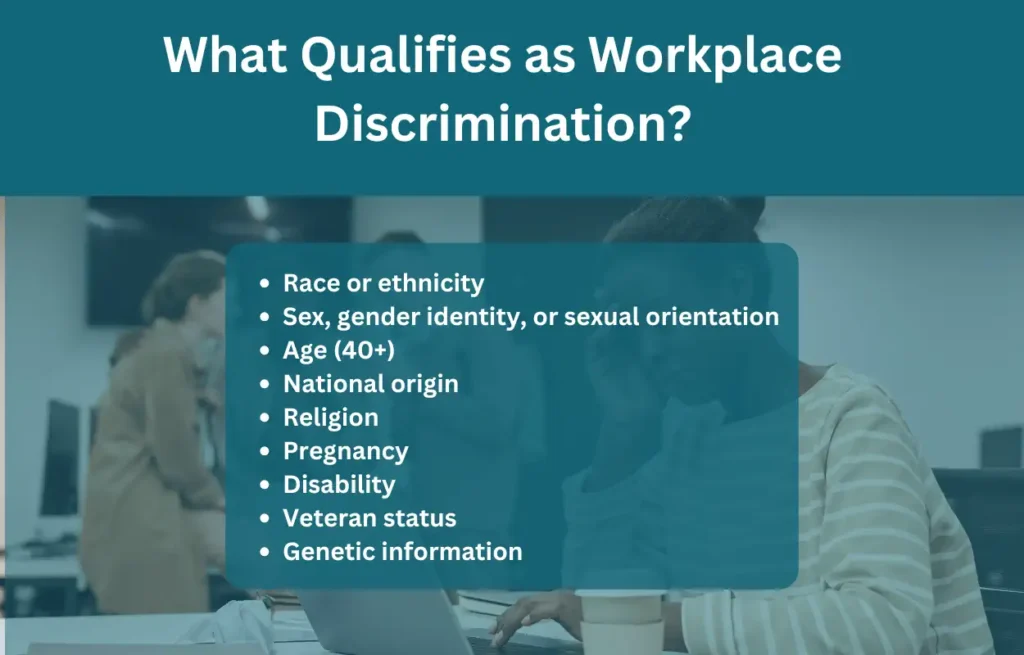Discrimination in the workplace is illegal but that doesn’t mean it never happens. Whether it’s being passed over for promotions, targeted with unfair discipline, or working in a hostile environment due to your race, gender, age, disability, religion, or another protected trait, you have the right to take action.
But knowing how to speak up and who to report to can be intimidating. Many employees hesitate to file complaints out of fear of retaliation or being ignored altogether. The good news: Oregon law gives workers strong protections when they report discrimination in good faith.
In this guide, we’ll walk you through the process of reporting workplace discrimination, how to protect yourself throughout the process, and what to expect. If you need legal help, the team atMeyer Employment Law is here to advocate for you confidentially and effectively.
Also read:
Types of Discrimination in the Workplace
How to Prove Discrimination in an Oregon Court Room
How to File a Job Discrimination

What Qualifies as Workplace Discrimination?
Workplace discrimination happens when an employer takes negative action against an employee or job applicant based on a protected characteristic. UnderORS 659Aand Title VII of the Civil Rights Act, the following are illegal reasons to discriminate:
- Race or ethnicity
- Sex, gender identity, or sexual orientation
- Age (40+)
- National origin
- Religion
- Pregnancy
- Disability
- Veteran status
- Genetic information
Discrimination can show up in many ways, some obvious, others subtle. Examples include:
- Termination, demotion, or denial of promotion based on race or gender
- Refusing reasonable accommodations for a disability
- Unequal pay for the same work
- Harassment that creates a hostile work environment
- Retaliation for reporting discrimination or supporting another employee’s complaint
If you’ve experienced any of these situations, you may have grounds to report workplace discrimination in Oregon.
Step-by-Step: How to Report Workplace Discrimination in Oregon
1. Document What Happened
Before you file a report, begin collecting evidence. Include:
- Dates and times of incidents
- Names of those involved
- Screenshots, emails, text messages, or voicemails
- Witnesses to any discriminatory or retaliatory behavior
The more documentation you have, the stronger your case will be—whether you report internally or file a state/federal complaint.
2. Review Your Company’s Anti-Discrimination Policy
Most Oregon employers are required to provide written policies under the Oregon Workplace Fairness Act. Look in your employee handbook or HR portal for:
- Anti-discrimination and harassment policies
- Internal complaint procedures
- HR or compliance contact info
Following this process protects your rights and shows that you gave your employer a chance to resolve the issue.
3. Report the Issue Internally (If Safe to Do So)
Use the company’s reporting process, if available. This may include:
- Filing a complaint with HR
- Submitting a written statement via a hotline or reporting portal
- Speaking directly to a manager or team lead
Pro tip: Always report in writing (email, online form, etc.) and save a copy for your records.
If your employer fails to take meaningful action or if you fear retaliation it may be time to file an external complaint.
Where to File a Workplace Discrimination Complaint in Oregon
Option 1: Bureau of Labor and Industries (BOLI)
BOLI is Oregon’s primary state agency for handling workplace discrimination. You can file a civil rights complaint online or by contacting a BOLI intake officer.
- Time Limit: You typically have up to 5 years under Oregon law to file with BOLI.
- BOLI will review your claim and may offer mediation or begin a formal investigation.
- If BOLI finds evidence of discrimination, it may issue penalties or help negotiate a resolution.
Option 2: Equal Employment Opportunity Commission (EEOC)
If your employer has 15 or more employees, you can also file with the federal EEOC.
- Time Limit: You have 300 days to file a claim under federal law.
- Filing with EEOC preserves your right to later file a lawsuit under federal civil rights laws.
Important: You do not need to file with both agencies. Filing with one automatically cross-files with the other in most cases.
What to Expect After You File
Once you submit a complaint to BOLI or the EEOC, they may:
- Review your documents and contact you for more details
- Notify your employer and request a response
- Offer mediation (voluntary)
- Conduct interviews and collect additional evidence
- Issue findings, resolve the matter, or give you a “right-to-sue” letter
At this point, you may choose to negotiate a settlement or move forward with a lawsuit.

Can You Be Fired for Reporting Discrimination?
No. Retaliation is illegal.
Employers cannot legally fire, demote, discipline, or otherwise punish you for reporting workplace discrimination in Oregon. If they do, you may have grounds for a retaliation or wrongful termination claim.
At Meyer Employment Law, we’ve represented many clients who faced retaliation after doing the right thing. We fight to protect your rights and your livelihood.
Do You Need a Lawyer to Report Discrimination?
You’re not required to hire a lawyer to report discrimination but it’s highly recommended, especially if:
- You’re unsure if your experience qualifies as discrimination
- You’ve already reported the issue internally but nothing changed
- You’re being retaliated against
- You want to file a formal complaint or lawsuit
An attorney can help you:
- Gather and organize your evidence
- Draft your complaint
- Communicate with BOLI or EEOC on your behalf
- Negotiate with your employer
- File a lawsuit if needed
Meyer Employment Law works exclusively with employees not companies. We offer confidential consultations and will walk you through your rights and options without pressure.
Protecting Your Rights Starts with Speaking Up
Workplace discrimination is still far too common. But Oregon law gives workers a powerful voice and the legal tools to fight back.
If you believe you’ve experienced unlawful discrimination at work, don’t stay silent. Begin documenting everything and report the behavior as soon as possible. And remember—you don’t have to go through it alone.
Meyer Employment Law is here to support you with experience, strategy, and compassion. Schedule a consultation today to take the first step toward protecting your rights and your future.



